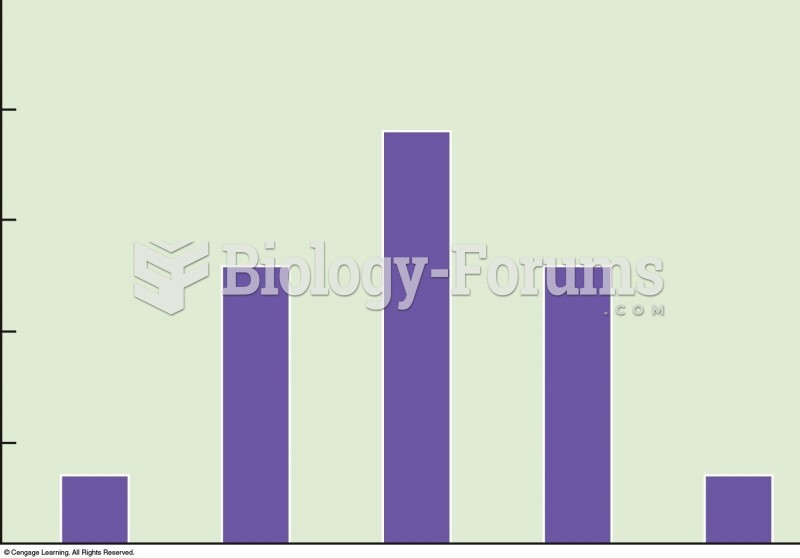|
|
|
In 2006, a generic antinausea drug named ondansetron was approved. It is used to stop nausea and vomiting associated with surgery, chemotherapy, and radiation therapy.
You should not take more than 1,000 mg of vitamin E per day. Doses above this amount increase the risk of bleeding problems that can lead to a stroke.
The Romans did not use numerals to indicate fractions but instead used words to indicate parts of a whole.
According to the CDC, approximately 31.7% of the U.S. population has high low-density lipoprotein (LDL) or "bad cholesterol" levels.
The term bacteria was devised in the 19th century by German biologist Ferdinand Cohn. He based it on the Greek word "bakterion" meaning a small rod or staff. Cohn is considered to be the father of modern bacteriology.
 To help his students understand the term generalized other, Mead used baseball as an illustration. ...
To help his students understand the term generalized other, Mead used baseball as an illustration. ...
 In many industrialized nations, men are having children at older ages, raising the possibility of ...
In many industrialized nations, men are having children at older ages, raising the possibility of ...
 The distribution of cones and rods over the human retina. The figure illustrates the number of cones ...
The distribution of cones and rods over the human retina. The figure illustrates the number of cones ...




